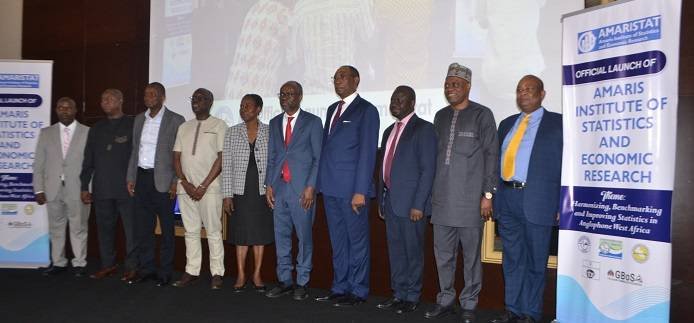
AMARIS Institute of Statistics and Economic Research (AMARISTAT) with the objective to mobilise funding for the establishment of National Statistical Offices (NSOs) in Anglophone West Africa has been launched in Ghana.
The World Bank and International Monetary Fund (IMF) supported AMARISTAT is also aimed at addressing inadequate funding and donor coordination in the Anglophone sub-region.
The event was attended by representatives from various NSOs, international development partners, and key stakeholders in the statistical community.
Speaking at the launch, the Director at the African Centre for Statistics of United Nations Economic Commission for Africa (UNECA), Dr Oliver Chinganya, said fostering partnerships with academia, government entities, and international organisations would enable AMARISTAT to advance in statistical methodologies and enhance data governance frameworks across member states.
Touching on concerns about institutional overlap and resource utilisation, Dr Chinganya stressed the importance of synergy and cooperation among regional statistical bodies, proposing a strategic alliances with existing specialised institutions and multilateral frameworks to optimise resource allocation and avoid duplication of efforts.
He expressed profound gratitude to all stakeholders involved in bringing AMARISTAT to fruition and highlighted the institute’s foundational role in fortifying national statistical frameworks, essential for evidence-based policy formulation and sustainable development.
He stressed the imperative for AMARISTAT to spearhead educational reforms and continuous professional development initiatives tailored to the regional context. Such efforts, he argued, are pivotal in equipping NSOs with the capacity to harness new data sources and digital advancements effectively.
Dr Emmanuel Fiadzo, the founder of AMARISTAT, in his address emphasised the necessity of the initiative, describing it as an idea born out of frustration with the existing disparities in statistical capacity across African countries.
“The creation of AMARISTAT is an idea whose time has come. It is aimed to provide a structured and harmonised training programme across member countries, develop country-specific training strategies, and establish a platform for benchmarking statistical progress,” Dr Fiadzo stated.
Dr Fiadzo also mentioned that the impetus behind AMARISTAT was the recent World Bank report highlighting the lack of regional competitiveness in statistical capacity among Sub-Saharan African countries. He emphasised the need for accurate and timely economic and social statistics to support poverty reduction strategies and meet the Millennium Development Goals.
“We are not promising to meet all the needs of every statistical office represented here, but with our team of experts, we will endeavor to create a robust capacity-building framework that can significantly enhance the statistical capabilities of our member countries,” he noted.
BY STEPHANIE BIRIKORANG


